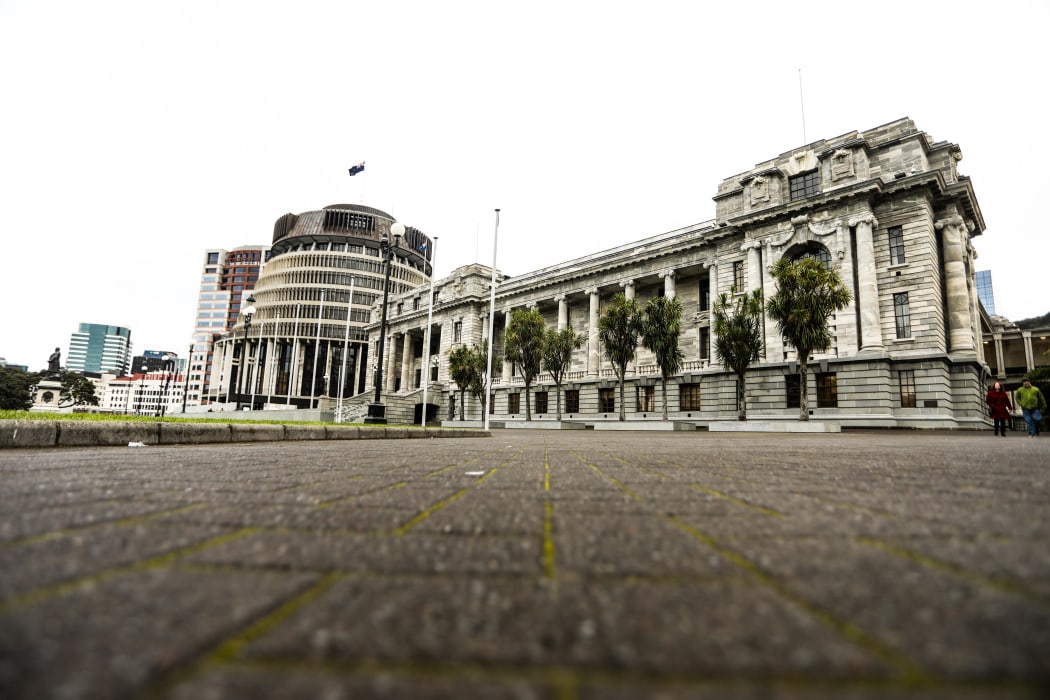A motion to disestablish the Epidemic Response Committee was passed by Parliament this week nine weeks after it was established.

Photo: VNP / Daniela Maoate-Cox
The committee was established on March 25th as the country prepared to move into an alert level four lockdown.
Its purpose was to provide scrutiny of the Government's Covid-19 response while Parliament was adjourned and with the country now operating at level two, the Leader of the House Chris Hipkins said the time had come for the committee to be reestablished.
"Parliament is now back more or less as normal. Members are able to attend the House. The legislative programme has been resumed. Question time is happening every day. Select committees can meet again, and Ministers will all be appearing before select committee in the coming weeks to discuss the Budget Estimates.
"So the regular function of parliamentary scrutiny that is so vital has now resumed, and therefore the Epidemic Response Committee has concluded the job that it was set up to do, which was to fill the void created when Parliament was no longer meeting."
A motion is essentially putting an idea before the other MPs and asking what they think. The motion Mr Hipkins put forward was: "I move, That the Epidemic Response Committee be disestablished."
An MP can put forward an alternative motion for debate which is what National MP Michael Woodhouse did.
"I move, That the words "be disestablished" be replaced with the words "remain for as long as the alert level remains at or above level 2, with consequent restrictions on the operations of Parliament, and the COVID-19 Public Health Response Act has not been repealed, and that the committee convene weekly." I shall be tabling, for the Clerk, a written copy of that."
Debatable motions allow MPs to stand up and indicate to the Speaker that they'd like to talk.
There's a time limit of 10 minutes but no limit on the number of speeches that can take place so any number of MPs can jump up to speak until the Speaker decides the topic has been discussed enough.
It's a good opportunity for MPs to nab some extra speaking slots as most debates have a limit on the number of speeches that can be made.
Five National MPs spoke in support of the alternative motion including Mr Woodhouse who said the Committee's work isn't done.
"It should be scrutinising these legislative changes. It should be scrutinising the sorts of decisions that the Government continues to make on behalf of New Zealanders, who, frankly, are in some kind of political Stockholm syndrome at the moment.
"That will change. And when it does, the Epidemic Response Committee will be as important as it has been in the last 10 weeks."
National MP Louise Upston said the Committee was needed as Parliament was still working under Covid-19 related restrictions.
"To not have every member of Parliament able to sit in this Chamber and to take their place and participate in our democracy is a significant challenge," she said.
"My colleagues have mentioned written questions, which is the normal vehicle, and Official Information Act requests. Legislation that the Government's been considering around the COVID-19 response hasn't required regulatory impact assessment. So a lot of the mechanisms of a normal scrutiny of Parliament haven't been in place."
Labour MP Michael Wood said Parliament was functioning in a way that mean the Committee was no longer needed.
"We have not actually heard in any coherent way what the restrictions on Parliament are that give a basis to the amendment because the Parliament is meeting fully at the moment, all of its functions are intact and being carried out. Select committees are meeting. Question time is occurring every day. Legislation is being considered. All of the scrutiny functions of the Parliament are happening now."
After the speeches the MPs had to vote three times.
First, they had to decide whether or not they should vote. MPs on the Government side tried to make this happen by saying: "I move that the question be now put".
This is a formal request to the Speaker to stop the debate and ask everyone to vote.
If the Speaker decides enough speeches have taken place then the MPs first vote on the amended motion first (Mr Woodhouse's one).
This was defeated 63 votes to 57.
The third and final vote was on the original motion from Mr Hipkins which was passed with 63 votes in favour from Labour, New Zealand First, and the Green Party. National, ACT and Jami-Lee Ross voted against.


